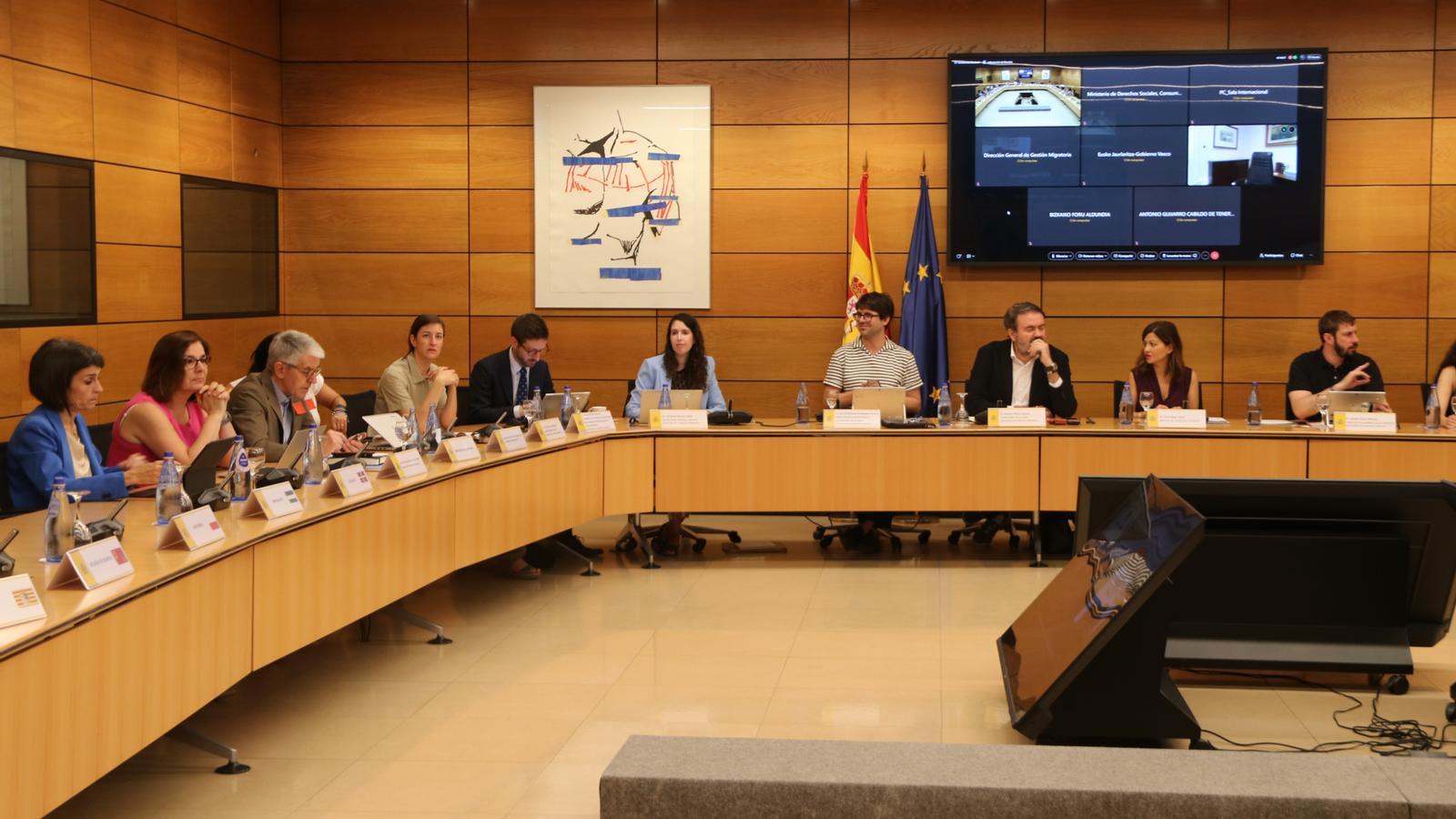The Spanish government wants to begin distributing migrant minors in August despite the PP's opposition.
Ceuta was the only territory governed by the Popular Party (PP) that attended the children's sector conference.


MadridThe Spanish government hopes to begin distributing asylum-seeking migrant children currently in the Canary Islands among the autonomous communities by the end of August. This is the intention of the Ministry of Youth and Children despite the boycott by the territories governed by the People's Party (PP), which did not attend the children's sector conference this Wednesday where the distribution was to be directed. Except for the autonomous city of Ceuta, no PP government attended this Wednesday's conference in Madrid. The regions that did participate in the meeting were Catalonia, the Basque Country, Navarre, Asturias, the Canary Islands, and Castilla-La Mancha.
In response to the refusal, the ministry headed by Sira Rego has decided to suspend the conference due to a lack of quorum, so it could not be held and there is still no agreement on the distribution. "They think they are leaving the government in the lurch, but in reality they are leaving the Canary Islands and the children on the islands in the lurch, who by law should be welcomed into the rest of the autonomous communities," lamented the Minister of Territorial Policy, Ángel Víctor Torres, via the social network X.
of immigration," Rego denounced in statements to the media, once the sector conference had already been suspended. "Feijóo's racist debts to Abascal will be paid by the children and people who live in the Canary Islands," said the minister.
The snub and the barbs at the PP's position coincide with a week marked by riots and racist attacks in Torre Pacheco (Murcia), in which Génova has raised the tone regarding the immigration issue: "An irregular immigrant who commits a crime in Spain must be deported immediately," it said. This is a thesis of the far right. In any case, the PP's position regarding distribution is not new. Feijóo's party has always rejected the Spanish government's approach because they consider it "arbitrary" and "underfunded," as the PP in Madrid criticized again this Wednesday.
Mandatory distribution
Despite the disagreement, the ministry assures that it can continue with its plan. As the minister explained, the Council of State, through a ruling, has just accredited and endorsed that the central government can move forward with the distribution. The intention is to hold a cabinet meeting on August 26th to present the decree on ordinary capacity, that is, specifying the number of minors each territory can accommodate and the financial resources that will be provided to make this possible. In this sense, Catalonia will ultimately host 32 minors voluntarily. "Starting August 28th, we are ready to begin transferring children to the Peninsula," Rego stated, lamenting that the PP (People's Party) is not joining in and instead opting to align itself with Vox's "racist" proposals.
What allows for this distribution and reception among the communities is the change approved in the immigration law a few months ago. In principle, the communities are required to provide information about their current situation and, subsequently, to accept the distribution if they do not wish to violate the law. However, sources from the Canary Islands regional government are more pessimistic about the timeline proposed by the Spanish government. The same sources believe that if the regional governments do not provide the necessary information to carry out the distribution, it will be difficult to execute. "The law will be enforced," insisted the minister, who opened the door to resorting to legal action to ensure that the receptions are implemented. "We are taking it step by step," she added, before asking that possible scenarios not be advanced.
The Minister of Social Rights of Catalonia, Mònica Martínez Bravo, also lamented the "irresponsibility and lack of solidarity" of the PP-led communities that have abandoned the Children's sector. "It's clear that there are two models: one that seeks solutions and solidarity with the humanitarian crisis facing the Canary Islands and Ceuta, and the other, focused on making noise and putting spokes in the wheels," he said in statements to the press upon leaving the meeting.
The Catalan government recalled that the distribution of migrant minors announced two weeks ago did not allocate them to Catalonia due to the excess number of receptions in previous years. However, it emphasized that 32 will be received "voluntarily" to show "commitment and solidarity" with the most stressed communities.
